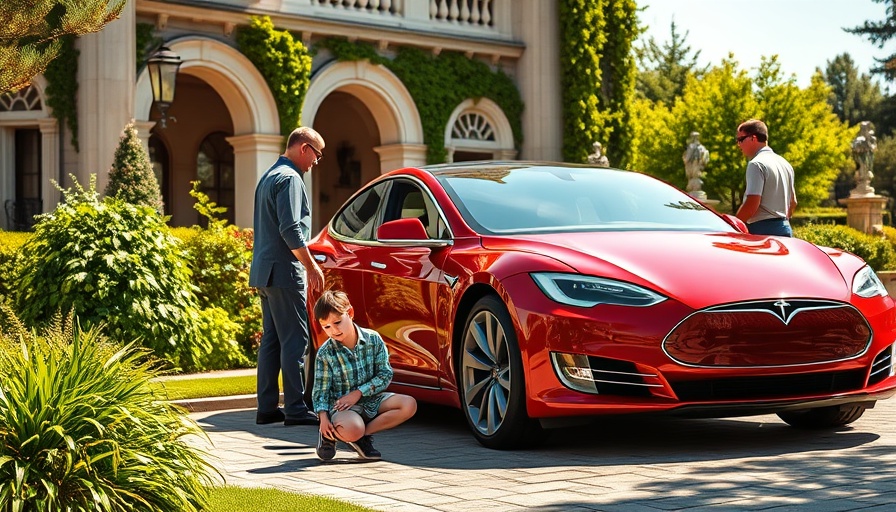
Tesla's Shift to Affordable Electric Vehicles
Tesla's announcement regarding the delay of its new low-cost electric vehicle (EV) reflects broader challenges facing the company. Initially planned for release in the first half of 2025, the launch has now been pushed back to late 2025 or early 2026. This delay not only impacts Tesla's brand reputation but also raises questions about its ability to compete in an increasingly crowded EV market.
The Reality of Falling Sales and Aging Lineup
Tesla has experienced a downturn in sales, influenced by various factors including an aging vehicle lineup and heightened competition from other auto manufacturers. Many potential customers are seeking alternatives that offer similar technology at lower costs, making the timely release of a more affordable model critical for Tesla's market position.
Impact of Leadership Decisions on Innovation
CEO Elon Musk's leadership style and controversial political engagements have also fueled customer uncertainty. His ambitious plans for the EV market, which included a much-discussed $25,000 model teased during the 2020 Battery Day event, have seemingly hit roadblocks. The shift away from developing a new, lower-cost production platform indicates growing pressure to adapt existing models rather than introduce groundbreaking new products.
Market Dynamics and Competitive Pressures
The landscape for electric vehicles is rapidly evolving, with competitors like Ford and Rivian making strides in the space. These companies are not only launching their own affordable models but also enhancing their technology and customer experiences. Tesla's leadership in the market is at risk if it cannot adapt to these dynamics effectively.
Consumer Expectations and the Future of Tesla Models
The expectations for Tesla's new model align with what consumers desire in terms of affordability and performance. Customers looking for budget-friendly options are often forced to weigh Tesla's value proposition against other brands. As the anticipated release date continues to stretch further into the future, consumer patience and loyalty may begin to wane.
Looking Ahead: What Experts Say
Industry analysts predict that, should Tesla successfully launch the new low-cost model, it could revitalize interest in the brand and attract a more diverse customer base. However, if the delays continue, the company risks losing ground to competitors who are quick to meet consumer demands for affordability and features.
Conclusion: The Importance of Meeting Market Needs
The delay in launching a more affordable Tesla model signals significant marketplace challenges. For consumers, this could mean navigating an evolving selection of EVs from various manufacturers. As Tesla works to realign its strategies, understanding the effects of these delays will be crucial for fans and potential buyers alike, reminding everyone of the relentless pace of innovation in the tech and automotive sectors.
Stay tuned to explore the latest in technology trends as this story unfolds and consider how changes in Tesla’s product offerings might affect your own choices in electric transportation.
 Add Row
Add Row  Add
Add 



Write A Comment